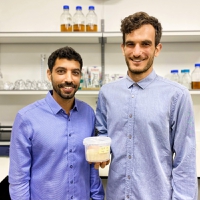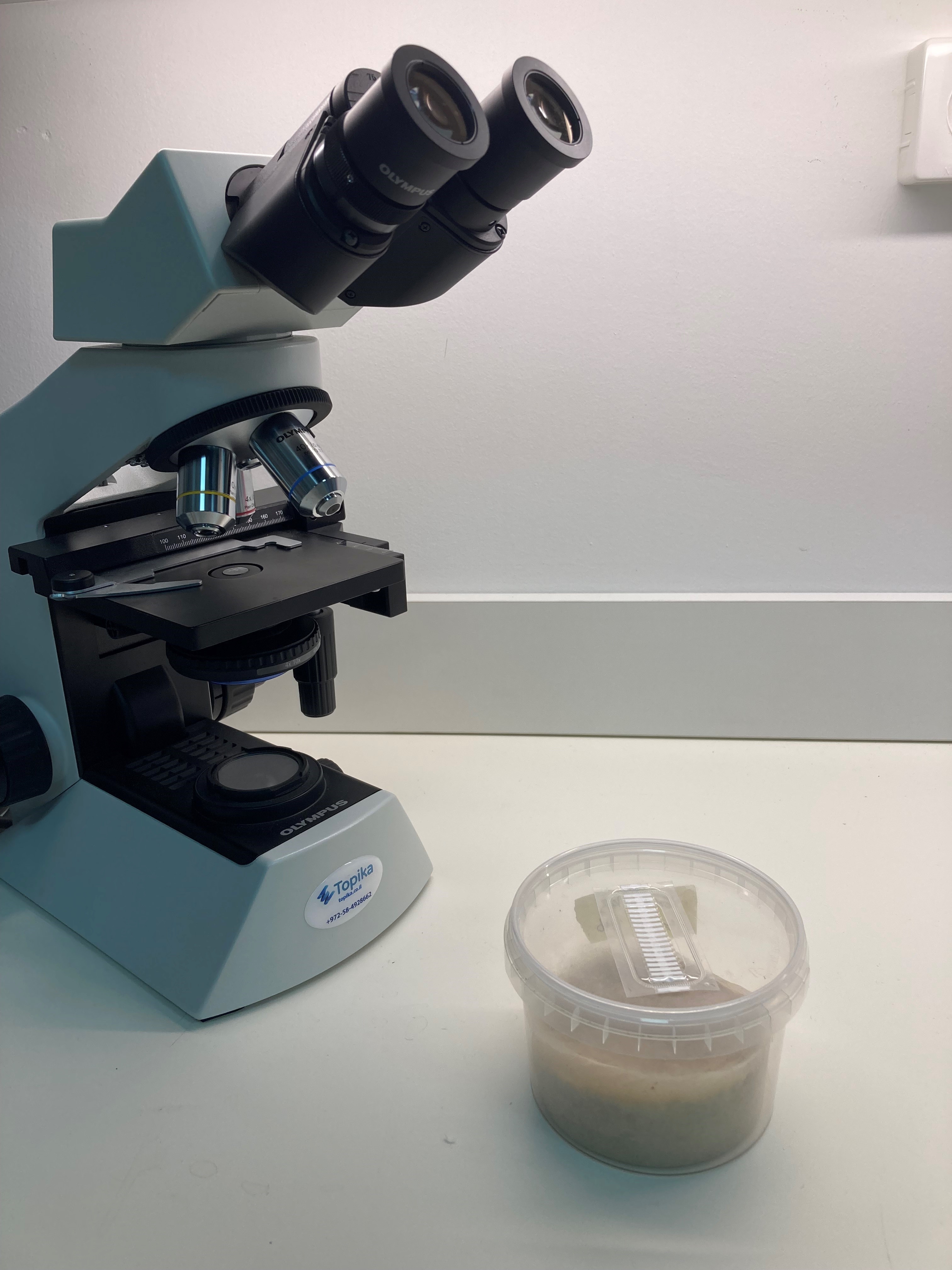

Established in 2022 by molecular geneticist Yotam David and mycology expert Rotem Cahanovitc, the company produces high-performance materials through a fermentation process that employs fungi cultivated on industrial organic waste, such as wood chips.
The compounds are mixed with bioplastics to create pellets. MadeRight is developing a solution for improved quality of plastic packaging – replacing fossil-derived materials.
The production method integrates into existing supply chains and packaging machinery to achieve cost-effectiveness akin to prevailing packaging production procedures within the food, cosmetics and other industries.
The seed funds will be used to expand the development team and optimize the production process.
“Presently, we consume 74% more resources than the Earth can regenerate in a year. Estimates indicate that humanity’s material and energy consumption equals 1.5 Earths annually. How do we restore equilibrium? At MadeRight, we believe the answer lies in sustainable materials derived from fungi,” says CEO Cahanovitc.
“Fungi serve as nature’s recyclers, thriving on what we consider waste. We harness the potential of fungi to fashion materials from renewable sources, fostering an economic circularity that will steer the future’s material revolution.”
MadeRight employs a fermentation process on fungi cultivated on industrial organic waste to produce the pellets.Covered in mushrooms
MadeRight is slated to introduce a prototype to the market in the upcoming year. The start-up creates new material using an interdisciplinary approach that leverages organic industrial waste as a nutrient source for cultivating fungi.
The fundraising campaign concluded following nearly a year of operation within the Fresh Start food-tech incubator, as part of the Israel Innovation Authority incubators program, involves a consortium of four partners: Tnuva, Israel’s largest food company, Tempo, a leading beverage company, the Our Crowd investment platform and VC Finistere Ventures.
“MadeRight’s revolutionary technology has the potential of effecting tangible change in the packaging market by reducing waste and pollution,” affirms Nega Sela Shalev, CEO of Fresh Start.
“The accomplishment of successful fundraising during this challenging period underscores investors’ confidence in the company’s pioneering technology and its ability to offer sustainable and economically viable solutions to the food industry, which is in dire need of transformative measures.”
Food packaging biotech
MadeRight details that despite the recyclability of many packaging materials, global recycling rates remain low at around 10%, mainly due to plastic additives mixed into the packaging to prolong the shelf life of products. These additives inhibit recyclability and MadeRight aims to replace them with sustainable fungi-based materials.
“The food packaging industry carries significant environmental implications, particularly due to the prevalent use of plastic. A considerable portion of food packaging relies on single-use plastic, continuously contributing to the increasing waste generation,” the biotech start-up shares.
“Every year, millions of tons of plastic packaging waste are produced, causing ocean, air and soil pollution and other environmental challenges. Additionally, packaging materials like plastic, glass and metal consume energy and resources, resulting in carbon emissions. The entire lifecycle of food packaging, from production to recycling or landfilling, leaves a substantial carbon footprint.”
MadeRight notes that at present, the worldwide food packaging market commands an approximate value of US$350 billion, with an annual growth rate of 5-6% - an upward trajectory propelled by multifaceted forces, including population expansion, urbanization trends, the burgeoning F&B sector and notable strides in packaging technology.
“Our mission is to maintain our current high quality of life without compromising the prospects of our children’s future,” concludes Cahanovitc.






